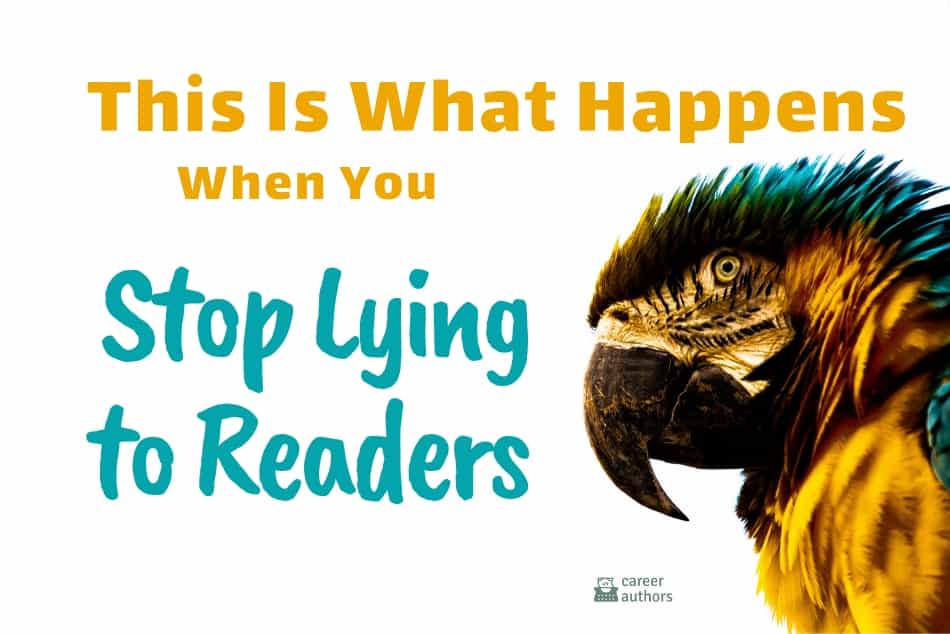When’s the last time you heard a car alarm and thought, “I better call the police,” instead of, “Knucklehead”? Or heard the backup beep from an earth-mover, and did anything but shake your head and endure, quietly cursing the interruption?
Don’t give false cues
Those are the same things people hear when you shout “Buy my book!” or “Hire me!” or “Read my blog!” or “Please retweet!”
Because we’re immune to that kind of noise, those interruptions whose meaning has been subverted by overuse and false alarms, those things people quietly endure until they can get back to what they care about, all while thinking, “Knucklehead.”
The shouting and beeping and blaring are all ignored because the cues are false. And the cues are false because promises have been repeatedly broken: the car is not being stolen; the overhyped book was derivative and slapdash; that clickbait did not deliver on its overblown headline. They are lies.
Expectations unmet means trust violated. And that’s unforgivable in our modern world built on reputation and instant feedback, where everyone’s a critic, with the megaphone of the internet in their pockets.
Interruption doesn’t work
Interruption itself is now a false cue – a lie. It used to have weight: Notice the interrupting growl of this hungry tiger; notice the honk of a single car on a quiet street; notice the plea of a stranger.
Now, too much cacophony and too many false cues have made us all cynics. Which means you need something besides interruptions to get attention for your work.
Instead, you need permission.
Permission like the kind people imply when they say “tell me more” or “what else of yours can I read?”
Or: “Please email me updates when you create something new.”
For people who give you permission, your message is a welcome respite from the interruptions. It’s the voice of someone with a trusted point of view, offering something that matters, from a position of service. That is value of the highest order.
That’s brand
Imagine a hero in an old western growling his cowboy wisdom of, “A man’s only as good as his word.” Multiply that reputational bedrock by every cell phone on the planet.
That’s brand. Your word echoing in hand-held glow to an infinite audience. And whether your reputation is that wide or limited to a handful of readers, your word is still at its core.
That’s brand: The set of promises you make and keep.
Or break.
Because when you lie to your readers by misunderstanding a genre or failing to deliver on your book’s promise, then you dilute your brand faster than has ever been possible before. And even when you’re not the one breaking promises, the car alarms and email spam and clickbait are doing it for you, for all of us.
Without promises to break
So instead of risking broken promises, you might choose not to make them, preferring to just get by or go with the flow or see what comes next, day by day.
None of which would have you putting your most authentic self forward.
Which would mean no platform to amplify your readership or enroll people in your journey. Or develop your next truly groundbreaking character. Or share that one story that more people need to hear.
No brand without promises
So to be notable and trustworthy – to be worthy of being noticed and trusted – make your unbreakable promises clear. Make promises with your book’s cover and blurbs and title and your own reputation as a trustworthy writer.
And then never break them. Not with false cues or faulty storytelling or any other kind of excuse.
Be invited in
To be a welcome messenger of value, be the invited guest. Instead of the peddler approaching a front door uninvited, be the courier with a bouquet in hand, bringing a gift from a friend.
Be the author who has delivered so reliably on so many promises that your readers can’t wait for more.
And then, with every book you write, keep delivering those bouquets.





